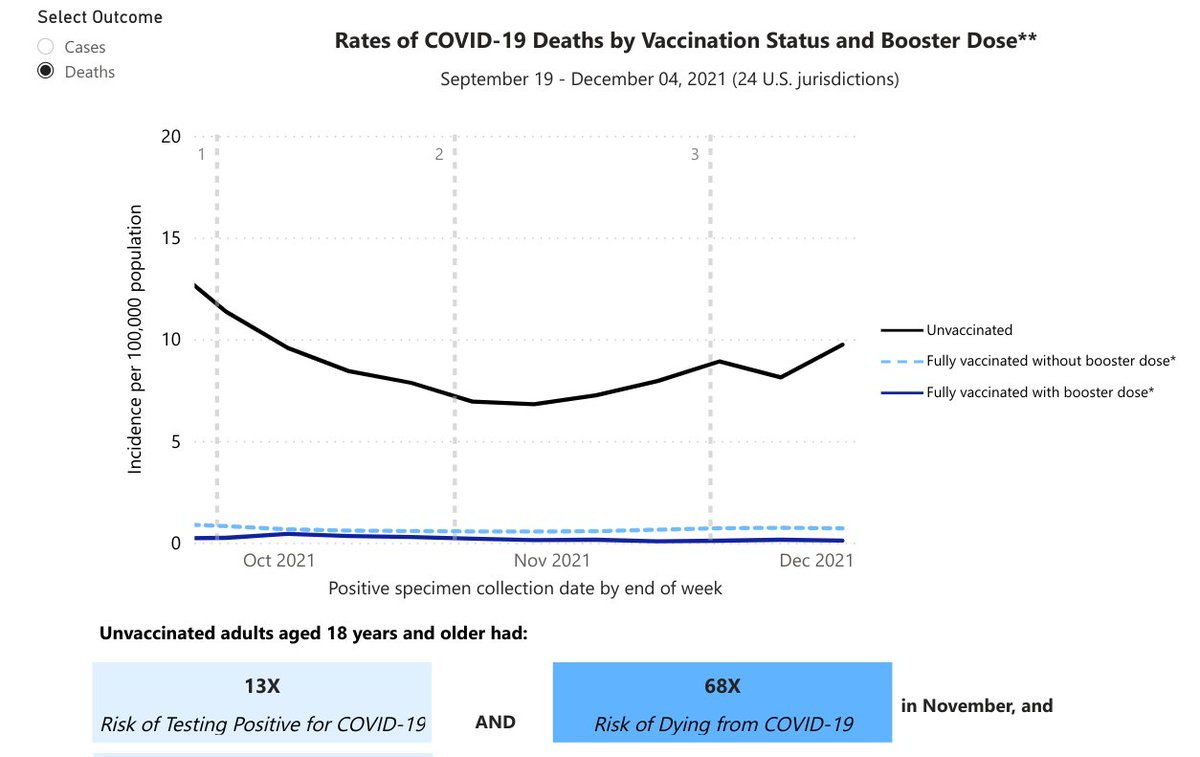
This isn't a real number.
https://twitter.com/POTUS/status/1490086336971386880
UK surveillance last 4 weeks, deaths within 28 days of a positive test by age group: fully vaccinated with 3+ doses vs. fully unvaccinated
80+ (4.4x)
70-79 (8.3x)
60-69 (10.3x)
50-59 (10.7x)
40-49 (6.0x)
30-39 (3.7x)
18-29 (5.0x)
Better? Absolutely! 97x better? NO
80+ (4.4x)
70-79 (8.3x)
60-69 (10.3x)
50-59 (10.7x)
40-49 (6.0x)
30-39 (3.7x)
18-29 (5.0x)
Better? Absolutely! 97x better? NO

Why UK surveillance is vastly superior to CDC data (which is "passive and voluntary" from jurisdictions and is not standardized). Their disclaimer:
"...the numerator and the denominator come from the same source and there is a record of each individuals vaccination status."
"...the numerator and the denominator come from the same source and there is a record of each individuals vaccination status."
This is critical. If you look at CDC data on vaccination rates, they acknowledge that "unknown" status is being included in unvaccinated. UK data actually remove unknowns when doing rate comparisons.
• • •
Missing some Tweet in this thread? You can try to
force a refresh










